
Diekirch: A Charming Blend of History and Nature
Nestled in the heart of Luxembourg, Diekirch is a picturesque town known for its rich history and stunning natural beauty. The town’s name, meaning “people’s church,” hints at its deep-rooted heritage, visible in its well-preserved architecture and historical sites. One of Diekirch’s standout attractions is the National Museum of Military History. This museum offers an immersive look into World War II through detailed exhibits and personal stories. For a more leisurely day, visitors can stroll along the Sauer River, enjoying the serene landscape and the charming town center. Diekirch is also famous for its vibrant festivals and outdoor activities. The annual Cavalcade, a grand carnival procession, attracts visitors with its colorful floats and lively atmosphere. Nature lovers can explore the nearby Ardennes mountains, perfect for hiking and cycling adventures. Whether you're a history buff, an outdoor enthusiast, or someone looking to relax, Diekirch has something special to offer.
Local tips in Diekirch
- Visit the National Museum of Military History early in the day to avoid crowds.
- Attend the annual Cavalcade festival if visiting in February for a unique cultural experience.
- Rent a bike to explore the scenic Sauer River and nearby Ardennes mountains.
- Try the local Diekirch beer, brewed in the town’s own brewery.
- Check the local weather before planning outdoor activities, as conditions can change quickly.
Diekirch: A Charming Blend of History and Nature
Nestled in the heart of Luxembourg, Diekirch is a picturesque town known for its rich history and stunning natural beauty. The town’s name, meaning “people’s church,” hints at its deep-rooted heritage, visible in its well-preserved architecture and historical sites. One of Diekirch’s standout attractions is the National Museum of Military History. This museum offers an immersive look into World War II through detailed exhibits and personal stories. For a more leisurely day, visitors can stroll along the Sauer River, enjoying the serene landscape and the charming town center. Diekirch is also famous for its vibrant festivals and outdoor activities. The annual Cavalcade, a grand carnival procession, attracts visitors with its colorful floats and lively atmosphere. Nature lovers can explore the nearby Ardennes mountains, perfect for hiking and cycling adventures. Whether you're a history buff, an outdoor enthusiast, or someone looking to relax, Diekirch has something special to offer.
When is the best time to go to Diekirch?
Iconic landmarks you can’t miss
Vianden Castle
Explore the enchanting Vianden Castle, a stunning medieval fortress surrounded by breathtaking landscapes and rich history in Luxembourg.
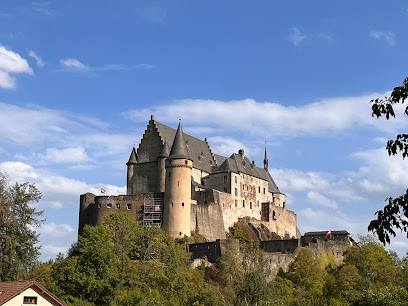
Bourscheid Castle
Discover the historical charm and breathtaking views of Bourscheid Castle, a must-see attraction in Luxembourg's picturesque countryside.
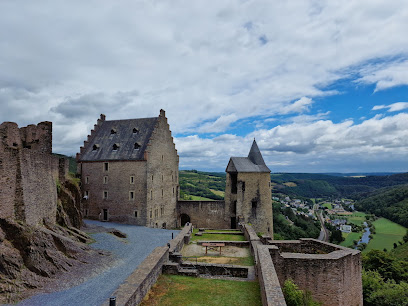
Clervaux Castle
Explore the stunning Clervaux Castle, a historical gem in Luxembourg, surrounded by picturesque landscapes and rich in cultural heritage.
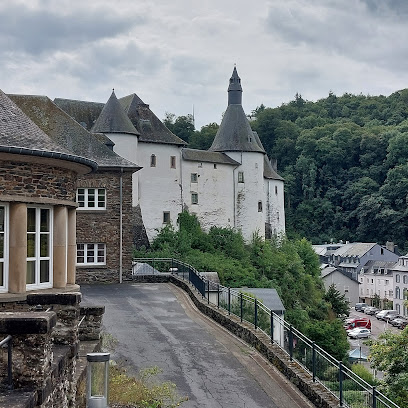
National Museum of Military History (MNHM) Asbl
Delve into the captivating history of warfare at the National Museum of Military History, where every artifact tells a story and history comes alive.
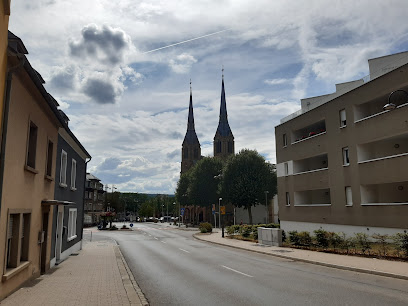
Larochette Castle
Explore the majestic Larochette Castle, a historical gem in Luxembourg offering breathtaking views and rich cultural heritage.
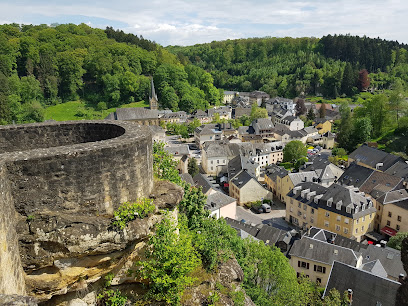
Useldange Castle
Explore Useldange Castle, a historical masterpiece in Luxembourg, surrounded by stunning gardens and rich cultural heritage, perfect for history lovers and tourists.
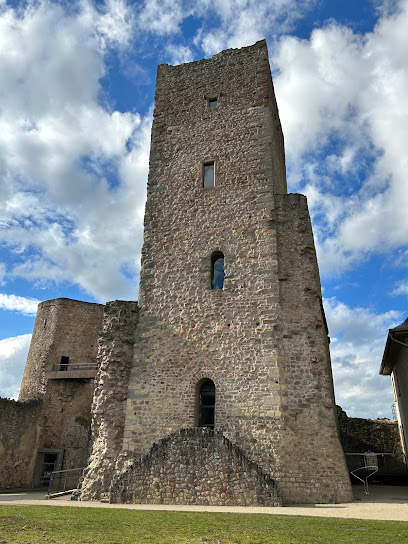
General Patton Museum
Experience the heroic legacy of General Patton at the General Patton Museum in Ettelbruck, a must-visit for military history enthusiasts.
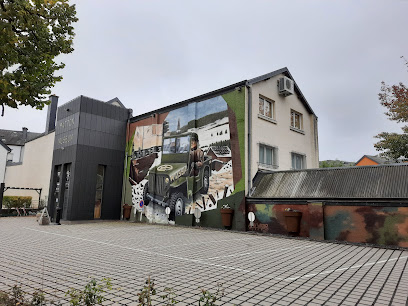
Camping de la Sûre - Diekirch
Experience the tranquil beauty of Luxembourg at Camping de la Sûre in Diekirch, where nature meets comfort for the perfect camping getaway.
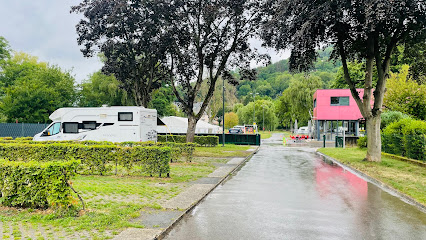
Dikricher Béierfest
Discover the vibrant Dikricher Béierfest in Diekirch, where local brews, delectable food, and lively entertainment unite in a festive celebration.
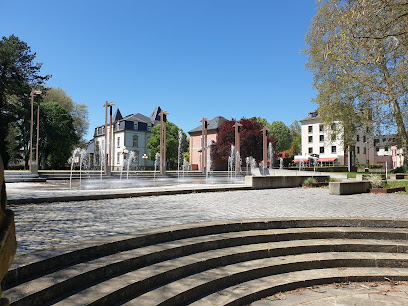
Statue of the Grand Duchess Charlotte
Explore the Statue of the Grand Duchess Charlotte, a historical gem in Luxembourg City that embodies the nation's rich heritage and artistic elegance.
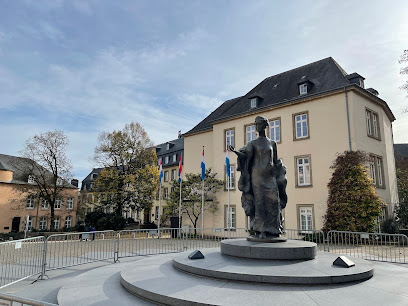
Citadelle du Saint-Esprit
Discover the stunning Citadelle du Saint-Esprit in Luxembourg, a historic fortress offering breathtaking views and rich military heritage.
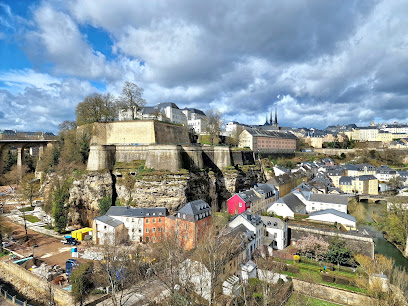
Patton Monument
Explore the Patton Monument in Erpeldange-sur-Sûre, Luxembourg, a historical tribute to General George S. Patton and a serene memorial park.
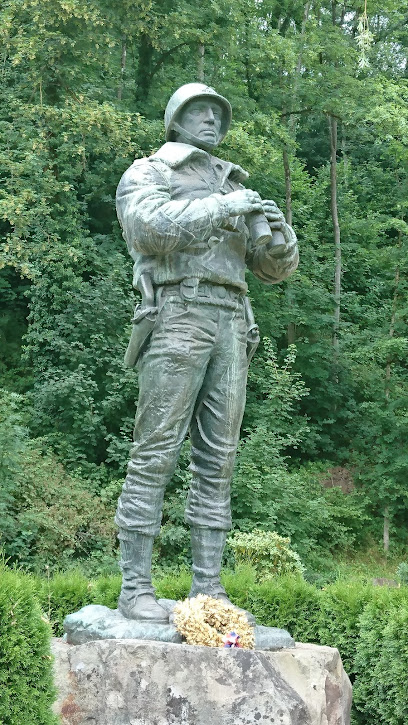
Musée d'Histoire(s) Diekirch
Explore the captivating history of Diekirch at Musée d'Histoire(s), a treasure trove of local culture and heritage in the heart of Luxembourg.
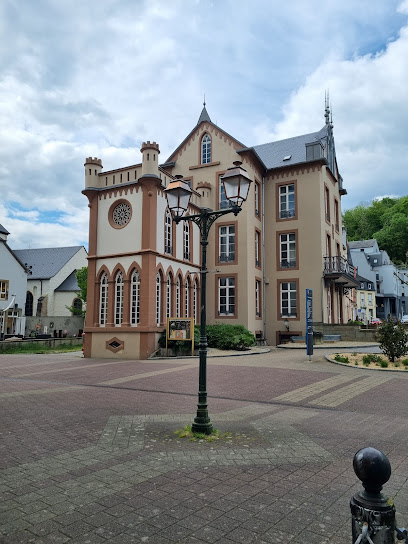
Deiwelselter
Explore the natural beauty of Deiwelselter State Park in Diekirch, a serene retreat perfect for hiking, picnicking, and enjoying the outdoors.
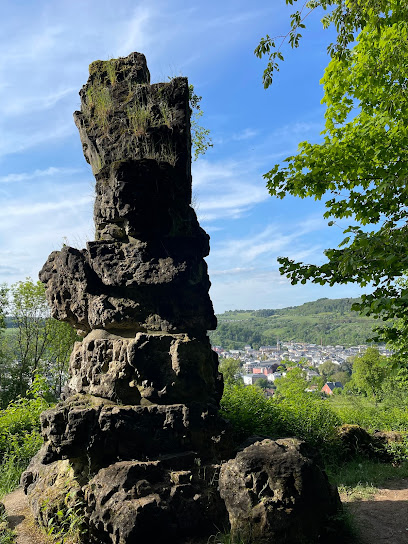
Syndicat d'Initiative
Explore Diekirch, Luxembourg's charming heart, and discover local attractions, culture, and experiences at the Syndicat d'Initiative.
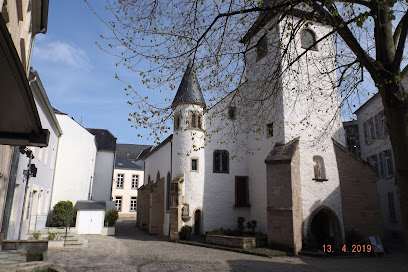
Unmissable attractions to see
Vianden Castle
Explore the enchanting Vianden Castle, a historic fortress that showcases Luxembourg's rich heritage and offers breathtaking views of the surrounding landscape.
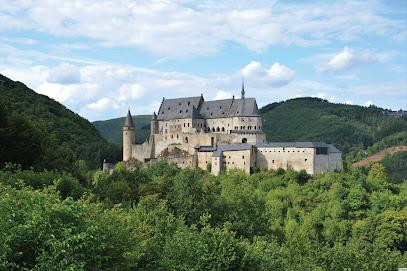
Trier Saint Peter's Cathedral
Explore the architectural beauty and historical significance of Trier Saint Peter's Cathedral, a must-see landmark in Germany's oldest city.
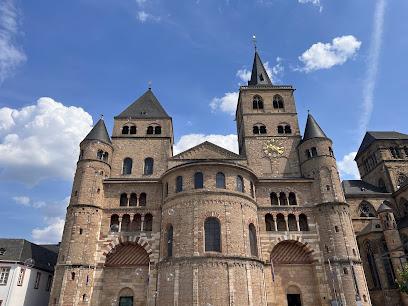
Bastogne War Museum
Discover the impactful history of WWII at the Bastogne War Museum, showcasing the Battle of the Bulge through immersive exhibits and poignant memorials.
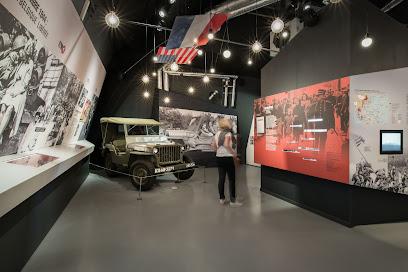
Casemates du Bock
Discover the rich history and breathtaking views at the UNESCO-listed Casemates du Bock, a must-see fortress in Luxembourg City.
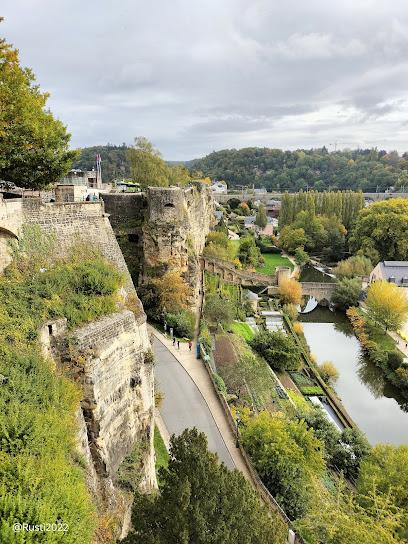
Pont Adolphe
Explore the stunning Pont Adolphe in Luxembourg City, an architectural marvel offering breathtaking views and rich historical significance.
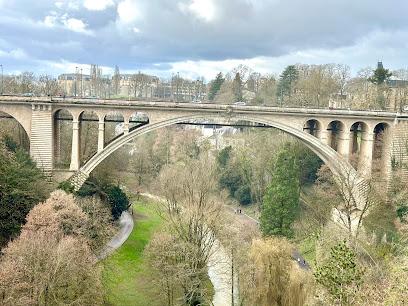
Panoramic Elevator of the Pfaffenthal
Discover breathtaking views of Luxembourg from the Pfaffenthal Panoramic Elevator, where stunning landscapes meet innovative engineering in a unique experience.
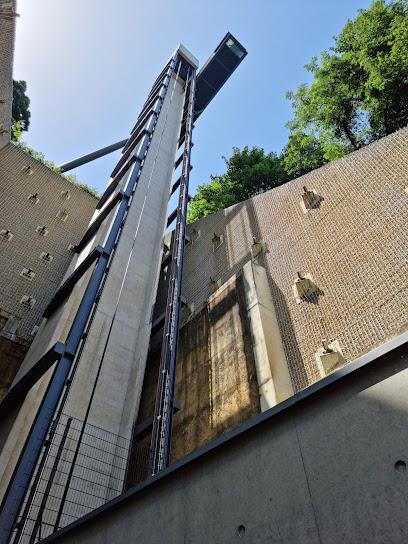
Trier Amphitheater
Explore the historic Trier Amphitheater, an ancient Roman marvel showcasing architecture, culture, and exhilarating spectacles of the past.
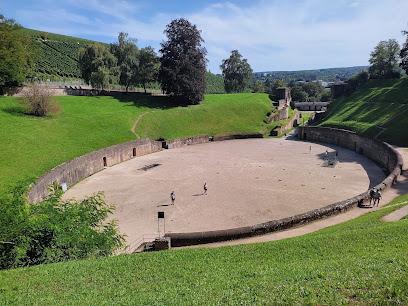
Cathédrale Notre-Dame
Explore the breathtaking Cathédrale Notre-Dame, a masterpiece of architecture and a key cultural site in the heart of Luxembourg City.
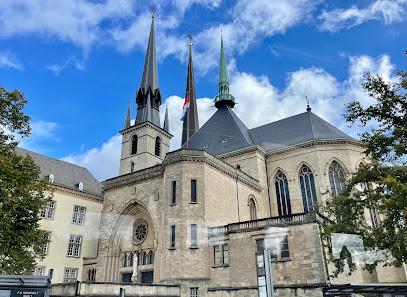
Palais Grand-Ducal
Explore the Palais Grand-Ducal, a magnificent historical landmark in Luxembourg City that showcases royal heritage and architectural beauty.
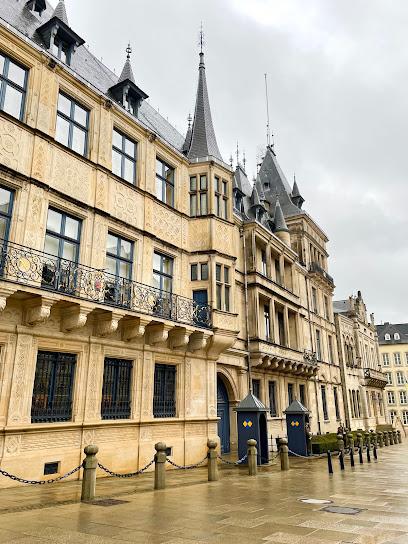
Schiessentümpel Waterfall
Experience the breathtaking beauty of Schiessentümpel Waterfall in Luxembourg's Mullerthal region, a must-see destination for nature lovers and adventure seekers.
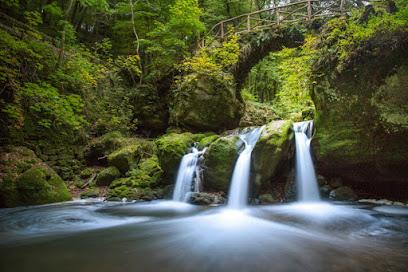
William Square
Discover the charm of William Square, a historical landmark in Luxembourg City, where vibrant culture meets rich history.
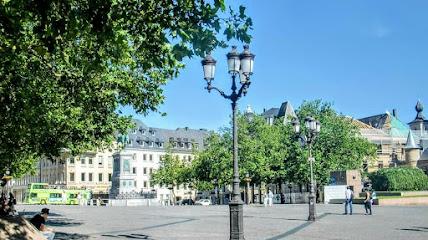
Mudam Museum of Modern Art
Explore Mudam Museum of Modern Art in Luxembourg, a stunning cultural hub showcasing contemporary creativity in a breathtaking architectural setting.
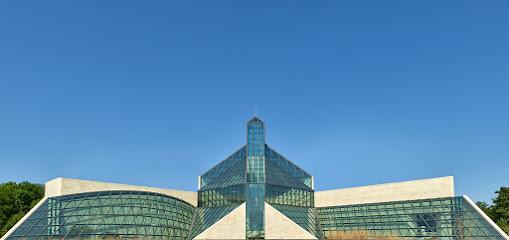
Philharmonie Luxembourg
Discover the Philharmonie Luxembourg, a stunning concert hall offering exceptional performances and world-class acoustics in a breathtaking setting.
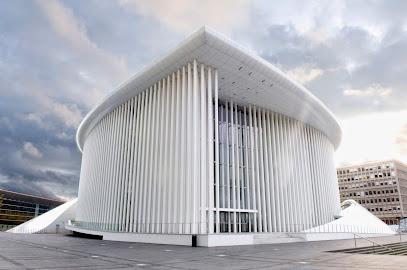
Neumünster Abbey
Explore Neumünster Abbey, a cultural center in Luxembourg blending history, art, and live music in a stunning historical setting.
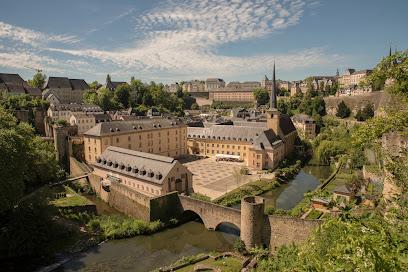
Place de la Constitution
Discover the historical charm and breathtaking views at Place de la Constitution in Luxembourg City, a must-visit for all travelers seeking cultural immersion.
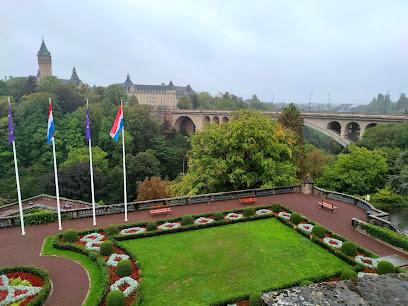
Essential places to dine
McDonald's Diekirch
Experience the convenience of McDonald's Diekirch - your go-to fast food destination in Ingeldorf offering delicious meals at affordable prices.
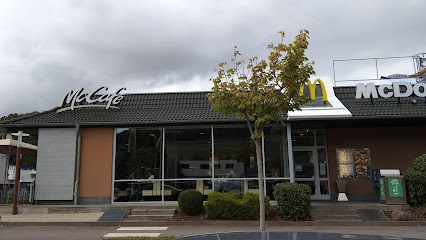
Brasserie Pizzeria Beim Franco
Experience authentic Italian flavors in Diekirch at Brasserie Pizzeria Beim Franco - where every meal is a celebration.
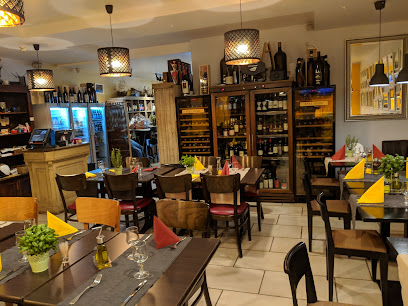
Beim Louis
Experience authentic Luxembourgish cuisine at Beim Louis in Diekirch – where local flavors meet cozy ambiance.
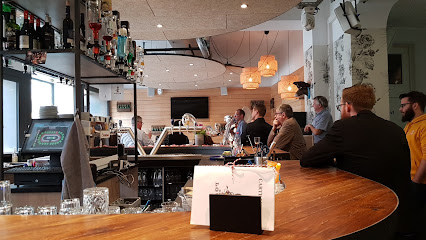
Al Schwemm
Discover Al Schwemm in Diekirch: A charming restaurant serving authentic Luxembourgish cuisine in an inviting setting.
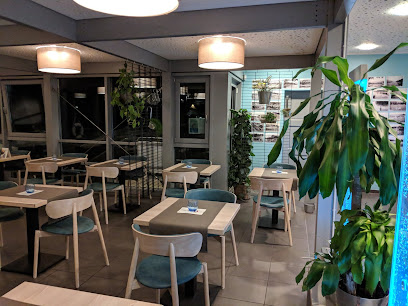
Steakbar Diekirch
Experience the ultimate steak dining at Steakbar Diekirch – where every bite is a celebration of flavor in the heart of Luxembourg.
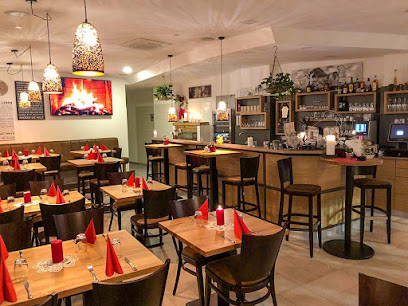
Restaurant Um Grill
Experience authentic Portuguese cuisine at Restaurant Um Grill in Diekirch – where every meal is a flavorful journey.
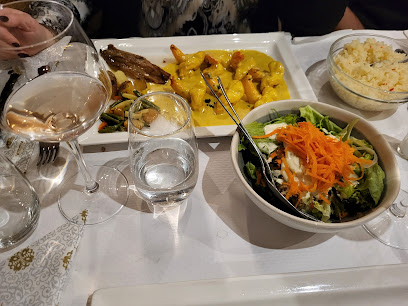
Feng Cheng
Experience authentic Chinese cuisine at Feng Cheng in Diekirch – where every dish tells a story.
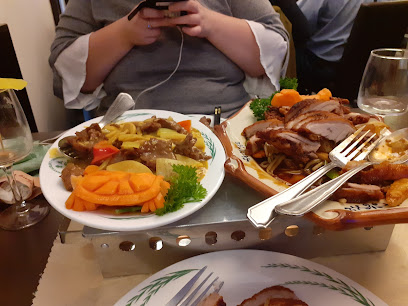
Café Dikkricher Stuff
Discover the flavors of Luxembourg at Café Dikkricher Stuff – where local charm meets culinary excellence in Diekirch.
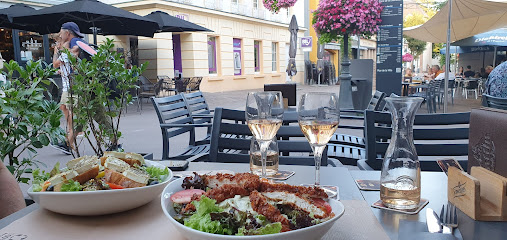
BONUS KEBAP
Discover authentic kebab delights at BONUS KEBAP in Diekirch - where every bite tells a story.
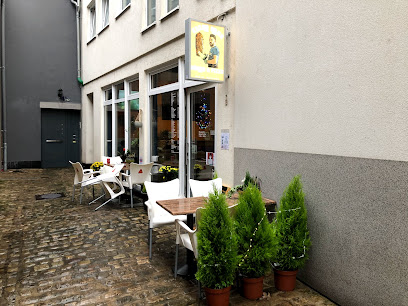
Café Miche
Experience the charm of Diekirch at Café Miche – your go-to brasserie for authentic local cuisine and warm hospitality.
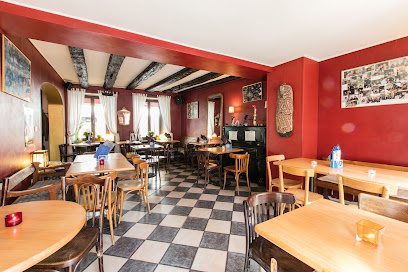
Restaurant Jardin du Portugal
Savor authentic Portuguese cuisine at Restaurant Jardin du Portugal in Diekirch – where every dish tells a story.
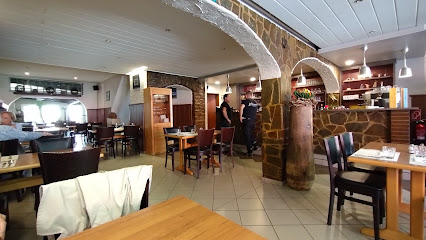
Restaurant du Commerce Sàrl
Experience the flavors of Luxembourg at Restaurant du Commerce Sàrl in Diekirch – where tradition meets taste.
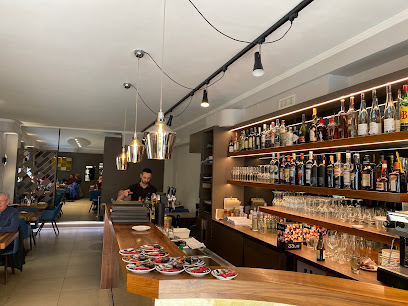
Restaurant Japonais Osaka
Experience the essence of Japan at Restaurant Japonais Osaka in Diekirch - where every dish tells a story.
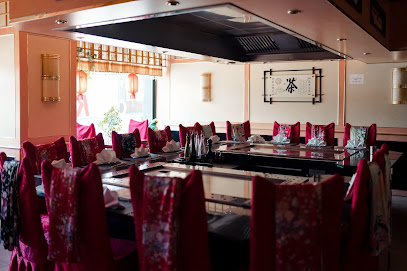
Dikricher Béierfest
Discover the heart of Luxembourg's beer culture at Dikricher Béierfest—an annual celebration filled with craft brews, local delicacies, and vibrant entertainment.
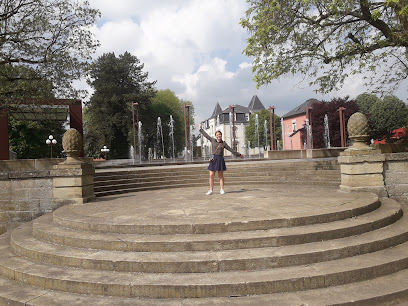
Restaurant La Fondue
Experience authentic Luxembourgish cuisine at Restaurant La Fondue in Diekirch - a must-visit for fondue lovers.
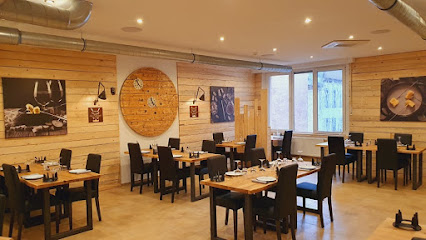
Markets, malls and hidden boutiques
Cactus hobbi Diekirch
Explore Cactus hobbi Diekirch for a vast selection of DIY tools, gardening supplies, and expert advice in a welcoming environment.
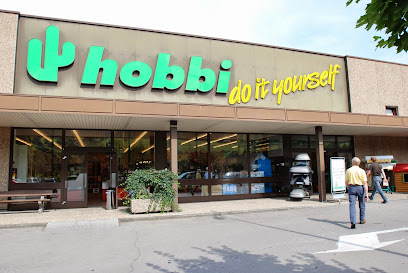
ART DIVIN / VINOTHÈQUE / VINS ITALIE / CORBEILLES / CADEAUX / GOURMET SHOP
Discover the exquisite flavors of Italy at ART DIVIN, Diekirch's premier gourmet shop offering fine wines, artisanal foods, and unique gift baskets.
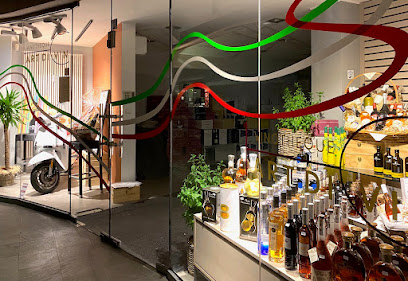
Calliste Women Diekirch
Explore Calliste Women in Diekirch for an exquisite selection of women's fashion, blending style and elegance in a charming boutique atmosphere.
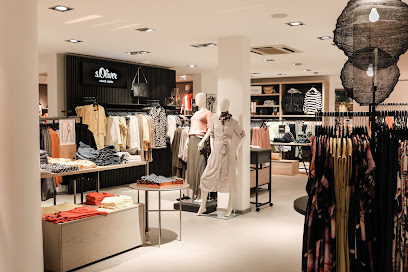
White Dreams
Explore the exquisite bridal collections and personalized service at White Dreams in Diekirch, Luxembourg's premier bridal boutique.

Action Diekirch
Discover unique gifts and home essentials at Action Diekirch, your go-to destination for shopping in Diekirch, Luxembourg.
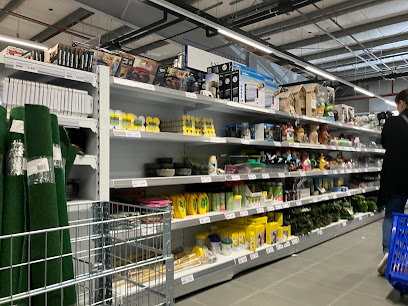
Bitz a Kaffi Haus
Explore Bitz a Kaffi Haus in Diekirch: a unique fabric store and café where creativity and flavor intertwine for every craft enthusiast.
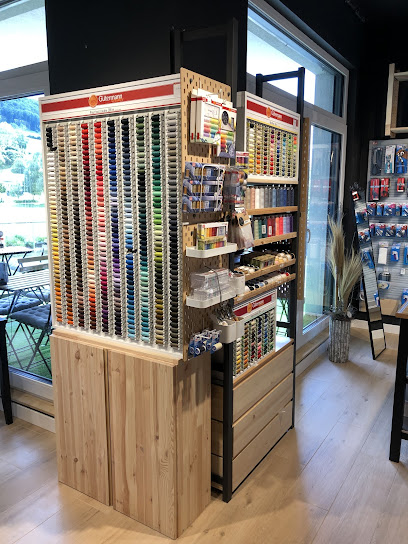
Margreitchen
Discover the magic of local shopping at Margreitchen, a charming store in Diekirch offering unique Luxembourgish treasures and artisanal delights.
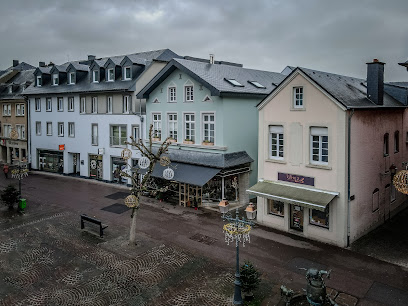
Grand Bazar Diekirch Sarl
Explore Grand Bazar Diekirch for unique gifts and local treasures in the heart of Luxembourg's charming Diekirch town.
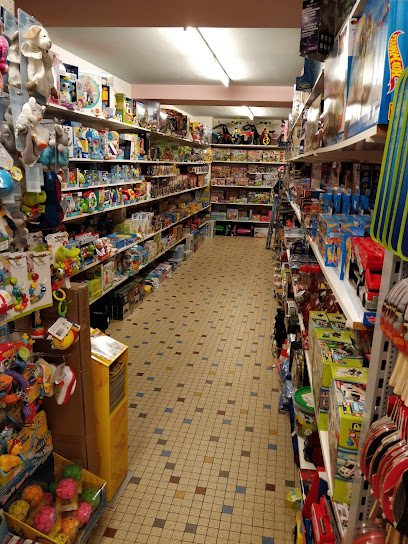
Zeeman Diekirch Rue de Curé
Discover Zeeman Diekirch for stylish clothing at great prices in the heart of this charming Luxembourg town.
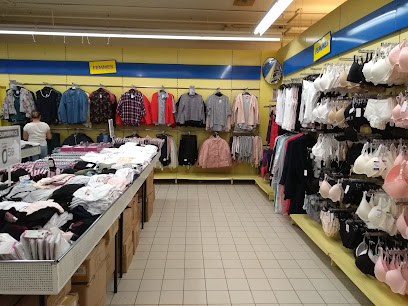
Vizerei
Discover authentic Luxembourgish flavors at Vizerei Grocery Store in Diekirch, where local produce and culinary specialties await every visitor.
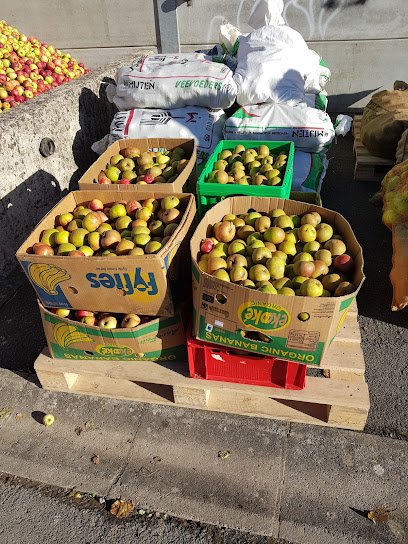
Chaussures 2 Mille
Explore the finest selection of leather goods in Diekirch at Chaussures 2 Mille, where quality meets style in every piece.
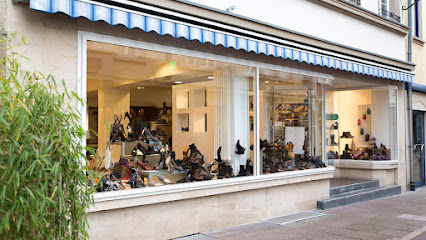
Goldlux
Explore Goldlux in Diekirch for exquisite jewelry that captures the charm of Luxembourg's culture and craftsmanship.
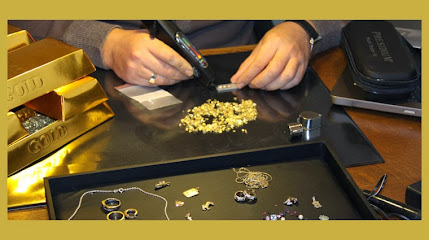
L'Armoire
Discover unique fashion pieces at L'Armoire, Diekirch's premier clothing store, perfect for tourists seeking stylish souvenirs.
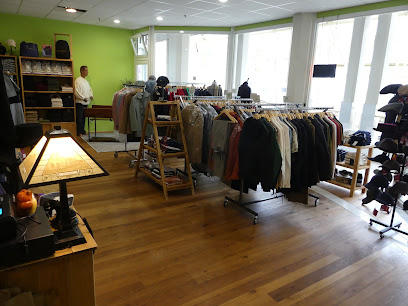
Lingerie Elvire by Hoffmann Thill
Discover the exquisite world of lingerie at Lingerie Elvire by Hoffmann Thill, where elegance meets comfort in Diekirch.
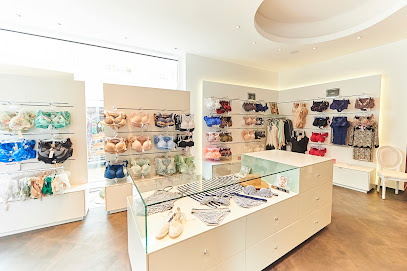
Minho Verde
Explore the charming Minho Verde in Diekirch, Luxembourg, for delightful pastries and local specialties in a cozy atmosphere.
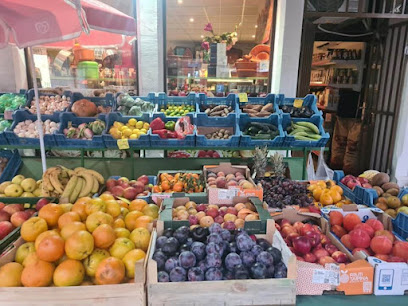
Essential bars & hidden hideouts
Brasserie Pizzeria Beim Franco
Experience the best of Italian and Luxembourgish cuisine at Brasserie Pizzeria Beim Franco in Diekirch, where every meal is a celebration of flavors.
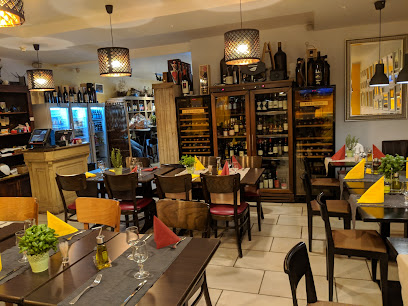
Café Beim Frank
Discover the charm of Café Beim Frank, a cozy pub in Diekirch offering a delightful atmosphere and local drinks for an authentic experience.
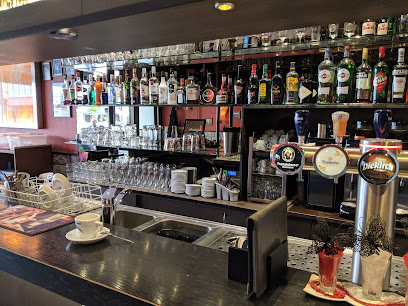
Beim Louis
Discover the culinary magic of Beim Louis in Diekirch, where local flavors meet international cuisine in a cozy atmosphere.
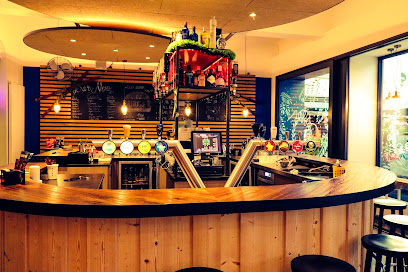
Al Schwemm
Experience the rich flavors of Luxembourg at Al Schwemm, a beloved restaurant in Diekirch offering diverse and delicious culinary delights.
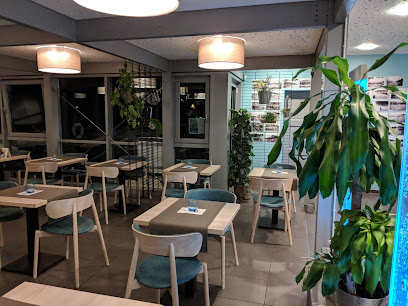
Steakbar Diekirch
Discover the ultimate steak experience at Steakbar Diekirch, where flavor meets tradition in a cozy setting.
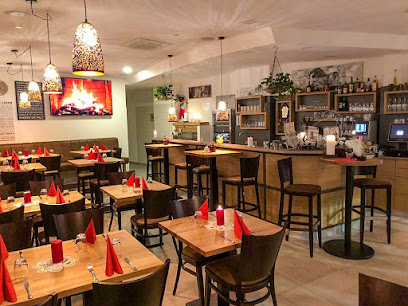
Café Dikkricher Stuff
Experience the vibrant flavors of local cuisine at Café Dikkricher Stuff, a top gastropub in Diekirch, Luxembourg.
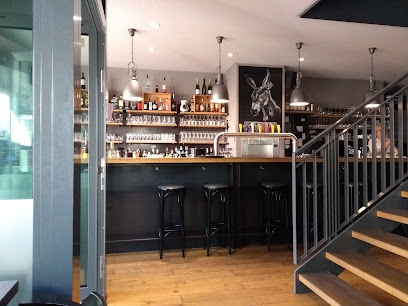
Café Miche
Discover the charm of Café Miche in Diekirch, where traditional Luxembourgish cuisine meets modern dining in a cozy atmosphere.
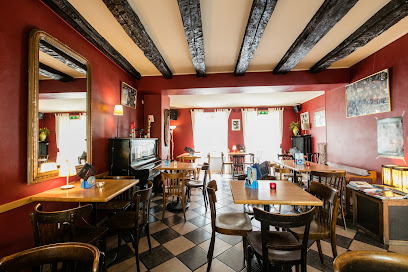
Dikricher Béierfest
Dikricher Béierfest: A festive beer celebration in Diekirch, Luxembourg, showcasing local brews, food, and vibrant culture.
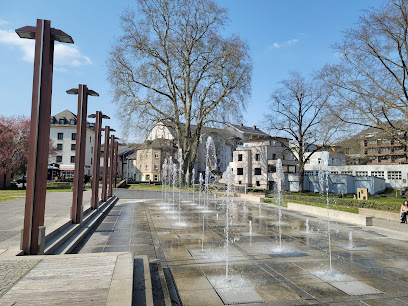
46 Am Tuerm
Discover the culinary treasures of Diekirch at 46 Am Tuerm, a bistro offering delicious local cuisine in a cozy atmosphere.
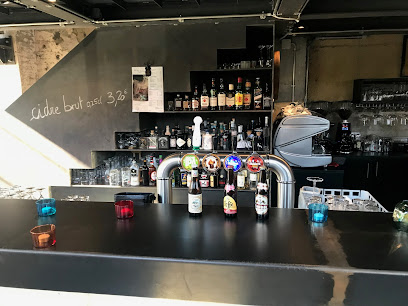
EL CUBANO
Experience the vibrant Caribbean spirit at El Cubano in Diekirch, where tropical cocktails and a lively atmosphere await every visitor.
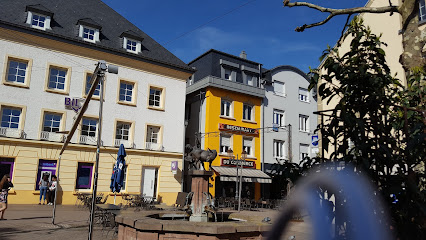
Osteria La Perla
Experience the essence of Italy at Osteria La Perla in Diekirch, where authentic flavors and a warm atmosphere create unforgettable meals.
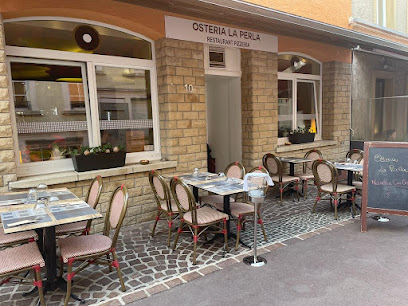
Cafe N°12
Discover the cozy charm of Cafe N°12 in Diekirch, where exceptional coffee meets delightful brunch and lunch options.
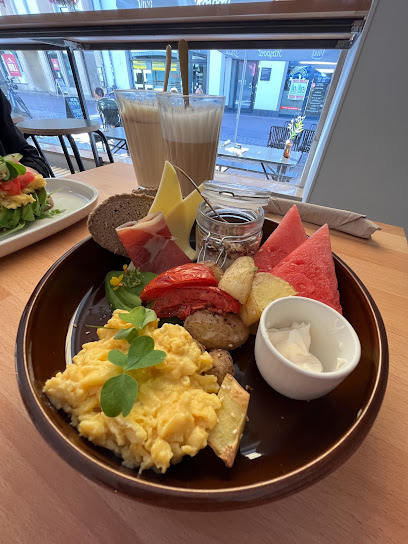
Riva Café
Experience the vibrant atmosphere of Riva Café in Diekirch, a unique bar and café where music and tapas come together for an unforgettable evening.
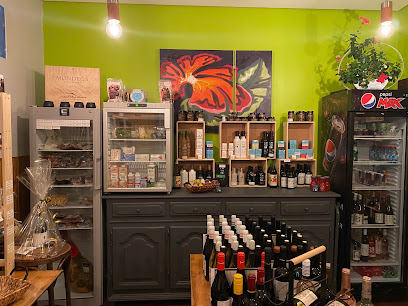
Restaurant italian
Experience authentic Italian cuisine at 20 Nove in Diekirch, where every dish is crafted with passion and tradition.
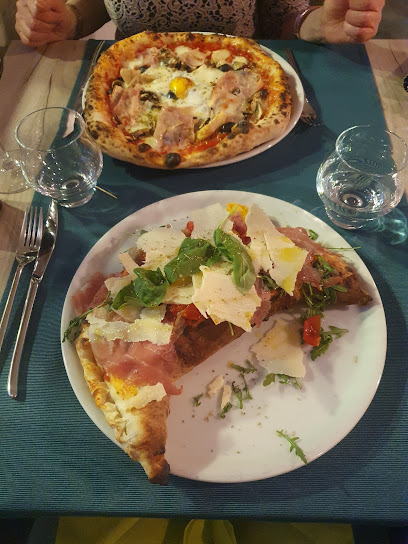
Local Phrases
-
- HelloMoien
[mwahy-en] - GoodbyeÄddi
[uh-dee] - YesJo
[yo] - NoNee
[nee] - Please/You're welcomeW.eecht
[vay-kt] - Thank youMerci
[mehr-see] - Excuse me/SorryEntschëllegt
[ent-shel-lekt] - How are you?Wéi geet et dir?
[vey geyt et deer] - Fine. And you?Gutt. An dir?
[goot ahn deer] - Do you speak English?Schwätzt dir Englesch?
[shvetst deer eng-lesh] - I don't understandEch verstinn net
[esh fer-shtin net]
- HelloMoien
-
- I'd like to see the menu, pleaseEch géif gär d'Menü gesinn, w.eecht
[esh geyf gehr deh-men-oo geh-seen vaykt] - I don't eat meatEch iess keng Fleeesch
[esh ees keng fleesh] - Cheers!Prost!
[prohst] - I would like to pay, pleaseEch géif gär bezuelen, w.eecht
[esh geyf gehr beh-tsue-len vaykt]
- I'd like to see the menu, pleaseEch géif gär d'Menü gesinn, w.eecht
-
- Help!Hëllef!
[hel-left] - Go away!Gitt ewech!
[gitt eh-vek] - Call the Police!Rufft d'Police!
[roof-t dee-pol-eetz] - Call a doctor!Rufft en Dokter!
[roof-t en dok-ter] - I'm lostEch hunn mech verluer
[esh hoon mekh fer-loo-er] - I'm illEch sinn krank
[esh seen krank]
- Help!Hëllef!
-
- I'd like to buy...Ech géif...kaafen
[esh geyf...kah-fen] - I'm just lookingEch kuck just
[esh kook yoost] - How much is it?Wéi vill kascht dat?
[vey feal kash-t dat] - That's too expensiveDat ass ze dreier
[dat ahs tseh dray-er] - Can you lower the price?Kënnt dir de Präis erof setzen?
[kunt deer deh preys eh-rof tset-zen]
- I'd like to buy...Ech géif...kaafen
-
- What time is it?Wéi spéit ass et?
[vey shpayt ahs et] - It's one o'clockEt ass eescht Auer
[et ahs eesh-t ow-er] - Half past (10)Halwer (10)
[hal-ver] - MorningMuer
[meer] - AfternoonNomëtteg
[noh-met-eg] - EveningOwend
[oh-vend] - YesterdayGëschter
[gesh-ter] - TodayHaut
[howt] - TomorrowMuer
[meer] - 1Eent
[ent] - 2Zwei
[zvey] - 3Dräi
[dray] - 4Veer
[feer] - 5Fënnef
[fin-eff] - 6Sechs
[zeks] - 7Siwen
[see-ven] - 8Aacht
[ahkht] - 9Nén
[nen] - 10Zéng
[zeng]
- What time is it?Wéi spéit ass et?
-
- Where's a/the...?Wou ass e/en/d'...?
[voo ahs ehn/dee] - What's the address?Wat ass d'Adress?
[vat ahs dad-ress] - Can you show me (on the map)?Kënnt dir mer (op der Kaart) weisen?
[kunt deer mehr (op dare kart) vey-zen] - When's the next (bus)?Wéini ass de nächste(n) (Bus)?
[vey-nee ahs deh nekst (bus)] - A ticket (to ....)Ee Billett (no ...) w.eecht
[eh bil-let noh vaykt]
- Where's a/the...?Wou ass e/en/d'...?
History of Diekirch
-
Diekirch, nestled in the heart of the Luxembourg Ardennes, traces its origins back to Roman times. Archaeological findings, including remnants of a Roman villa, reveal that the area was inhabited as far back as the 1st century AD. The name 'Diekirch' is believed to derive from 'Diet-Kirch', meaning 'people's church', indicating the town's early significance as a religious center.
-
In the Middle Ages, Diekirch grew around its church and abbey, which were established in the 8th century. The town became an important religious and cultural hub, with the Abbey of St. Laurentius playing a central role. The abbey's influence extended throughout the region, contributing to the town’s development and prosperity during medieval times.
-
The Thirty Years' War (1618-1648) was a tumultuous period for Diekirch. The town suffered significantly due to its strategic location, leading to frequent occupations and battles. It was during this time that the fortifications of Diekirch were strengthened, although much of the town was ravaged by the conflict. Despite the destruction, the resilient spirit of its inhabitants helped Diekirch recover in the subsequent years.
-
The 19th century brought significant changes to Diekirch, thanks to the Industrial Revolution. The town saw the establishment of several breweries, which became a major economic driver. The Diekirch Brewery, founded in 1871, became renowned for its beer, contributing to the town's reputation. Additionally, the advent of railways improved connectivity, further boosting economic growth and transforming Diekirch into a bustling center of industry and commerce.
-
Diekirch played a crucial role during World War II, particularly during the Battle of the Bulge in 1944-1945. The town was a strategic point in the German offensive and witnessed intense fighting. The National Museum of Military History in Diekirch meticulously documents this period, showcasing artifacts, equipment, and personal stories from the battle. This museum serves as a poignant reminder of the town's wartime experiences and the resilience of its people.
-
Today, Diekirch is a vibrant town that seamlessly blends its rich historical heritage with modern amenities. The town is known for its cultural events, such as the annual Cavalcade, a grand parade that attracts visitors from all over Luxembourg and beyond. Diekirch’s picturesque landscapes, historic sites, and warm community make it a charming destination that celebrates its past while looking forward to the future.
Diekirch Essentials
-
Diekirch is located in north-eastern Luxembourg. The nearest airport is Luxembourg Findel Airport (LUX), approximately 35 kilometers away. From the airport, you can take a train or a bus to Diekirch. The journey takes around 1 to 1.5 hours. Alternatively, if you are coming from neighboring countries, Diekirch is well connected by train and bus services from major cities in Belgium, France, and Germany.
-
Diekirch is a small town, and many attractions are within walking distance. For longer trips, local buses and trains are reliable and efficient. The town is also bicycle-friendly, and bike rentals are available. Taxis can be found but are less common. Consider renting a car if you wish to explore the surrounding regions at your own pace.
-
The official currency in Luxembourg is the Euro (EUR). Credit and debit cards are widely accepted in hotels, restaurants, and shops. However, it is advisable to carry some cash, especially for smaller purchases or in more rural areas. ATMs are readily available in Diekirch.
-
Diekirch is generally a very safe destination for tourists. The crime rate is low, but it is always good to take standard precautions. Avoid leaving your belongings unattended in public places and be cautious when walking alone at night. There are no specific high-crime areas targeting tourists.
-
In case of emergency, dial 112 for immediate assistance. This number covers police, fire, and medical emergencies. The local police station and medical facilities are available in Diekirch. It is recommended to have travel insurance that covers medical emergencies. Pharmacies are available for minor health issues, where you can purchase over-the-counter medications.
-
Fashion: Do dress comfortably and seasonally appropriate. Luxembourgish people tend to dress smart-casual. Avoid overly casual attire in upscale restaurants. Religion: Do respect local customs, especially when visiting religious sites. Public Transport: Do be punctual and validate your ticket. Don't talk loudly or disturb others. Greetings: Do greet people with a friendly 'Moien' (Hello in Luxembourgish) and a handshake. Eating & Drinking: Do try local dishes such as 'Judd mat Gaardebounen' and the local beers. Don't refuse food or drink offerings, as it is seen as impolite.
-
To experience Diekirch like a local, visit the local markets and try the fresh produce and traditional Luxembourgish goods. Engage with the friendly locals who are often willing to share stories about the town's history and culture. Explore the Diekirch History Museum, which gives insights into the town's past. For a unique experience, visit during the annual Diekirch Beer Festival, where you can enjoy local beers and traditional music.
Trending Landmark in Diekirch
-
Vianden Castle
-
Bourscheid Castle
-
Clervaux Castle
-
National Museum of Military History (MNHM) Asbl
-
Larochette Castle
-
Useldange Castle
-
General Patton Museum
-
Camping de la Sûre - Diekirch
-
Dikricher Béierfest
-
Statue of the Grand Duchess Charlotte
-
Citadelle du Saint-Esprit
-
Patton Monument
-
Musée d'Histoire(s) Diekirch
-
Deiwelselter
-
Syndicat d'Initiative
Nearby Cities to Diekirch
-
Things To Do in Vianden
-
Things To Do in Echternach
-
Things To Do in Wiltz
-
Things To Do in Clervaux
-
Things To Do in Luxembourg City
-
Things To Do in Grevenmacher
-
Things To Do in Arlon
-
Things To Do in Remich
-
Things To Do in Dudelange
-
Things To Do in La Roche-en-Ardenne
-
Things To Do in Spa
-
Things To Do in Durbuy
-
Things To Do in Liege
-
Things To Do in Dinant
-
Things To Do in Aachen










